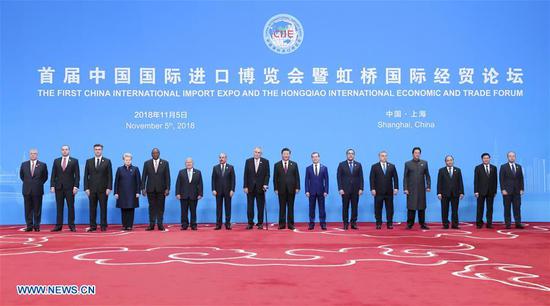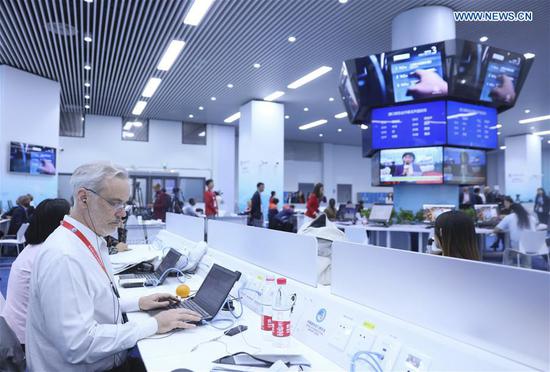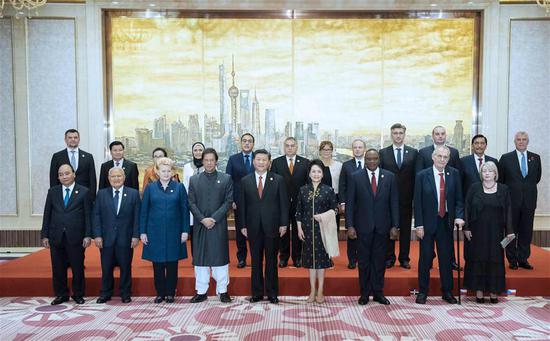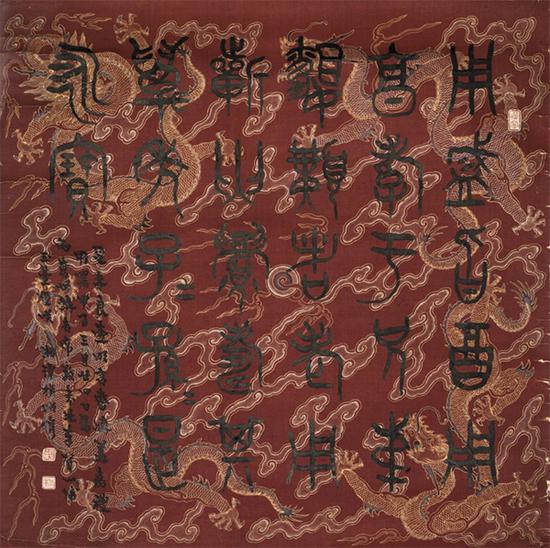
A child tries out an audio book at a Ximalaya booth during a book fair in Shenzhen, Guangdong Province. (CHINA DAILY)
Companies developing high-quality, paid content are slowly finding a niche with Chinese customers, big-ticket investors
Like millions of working women in China, Tracy Liu too rides the subway home, but with a difference. While most of her peers are busy chatting on phones or engaging in conversation, the Beijing-based 25-year-old office worker spends her time reading English novels on Mint Reading, an English-reading program installed on the WeChat platform by Chengdu Chaoyouai Education Technology.
Liu spends 149 yuan ($21.4) to purchase content on Mint Reading, which typically allows her to read three novels within 100 days. What is different is that the interactive app is not just about reading novels, but also brushing up one's vocabulary and knowledge, said Liu as she focused her attention to the next chapter of The Great Gatsby, F Scott Fitzgerald's 1925 classic.
Once she logs into the course, she will go through the daily vocabulary list, read a chapter and then answer questions based on the story. And what really motivates her is the last step, sharing her daily effort, or in other words the number of words she has read, on her WeChat.
"I am too busy to find suitable time to read books and improve myself. The fragmented time on the subway actually provides me with a learning opportunity, while the sharing allows me to show my friends that I am studying hard and in turn wins me lots of likes on WeChat," said Liu.
Liu and Mint Reading are just one of the millions of people and startups who are looking to carve out a niche in China's rapidly growing knowledge sharing economy, where paid content is king.
Xue Yongfeng, an analyst at Beijing-based internet consultancy Analysys, said that customers are now willing to pay for virtual content whereas earlier they were willing to do so only if it was something physical that they could relate to.
"With income levels rising and new payment options emerging, netizens are now more willing to pay for their favorite content," Xue said.
And statistics do bear the fact that the online paid knowledge market is on the cusp of a boom in China. Last year, the industry generated more than 4.9 billion yuan in economic output, up 300 percent year-on-year, according to a recent industry report from iResearch, a market consultancy firm.
Buoyed by the gradual increase in market awareness and the growing number of users who are willing to pay for high-quality knowledge services, the online paid knowledge market in China is set to maintain relatively high growth in the next three years and reach 23.5 billion yuan by 2020, the report said.
The report said there would be a slowdown in the traditional publishing, education, media and other related sectors, while skilled professionals will flood into the knowledge services industry that has a short monetization process and huge potential for growth.
On one hand, the knowledge market will further expand in the future. On the other hand, limited by the attention of individual users and the range of acceptable per customer transactions of targeted users, its growth rate will decline and become stable eventually, it said.
Guan Qingyou, director and chief economist at Rushi Advanced Institute of Finance, believes that knowledge consumption is growing steadily in China due to the increase of mid-income earners and consumption upgrading.
"The existing content on offer is unable to satisfy market demand, and specialized knowledge will be the future," Guan said at a payment summit held in Beijing in June. "Currently, the market does not lack good payment channels, but it lacks high-quality content. And people are actually willing to pay for good content."
Guan added for the paid knowledge content providers, the biggest obstacle was the sustainability of the content rather than consumer demand.
According to a report published by the Chinese Academy of Social Sciences and the Social Sciences Academic Press, most of the paid knowledge consumers are between 21 and 40 years old. Born in the 1980s and 1990s, these millennials are mainly living in first-and second-tier cities, usually earning 5,000 yuan to 8,000 yuan a month.
Those young groups are usually newcomers or middle-level manager in companies, having a higher requirement for practical skills and knowledge content. However, their fragmented spare time cannot support continuous course learning, and it is really hard for them to select needed knowledge content from a vast amount of online information. This is where the high-quality paid content comes in and helps them gain access to learning materials they really need.
According to the report, the online paid knowledge market boasted 188 million users by the end of 2017, compared to 93 million users by 2016.
Sensing the boom in the market, a growing number of companies have made their moves and some have even reaped the fruits.
Audio sharing platform Ximalaya has seen rapid growth since it tapped into the paid content business in 2016 to encourage professionals to sell their knowledge online. For instance, the paid music course by Tian Yimiao, an associate professor at the Shanghai Conservatory of Music, has gained more than 13 million views on the Ximalaya platform, making Tian a new online celebrity.
"In the mobile era, everyone's time is getting fragmented," Ximalaya said in an email to China Daily. "Our goal is not to occupy users' time, but help them save time. Compared with traditional offline education training, audio content will help users make full use of their fragmented time, catering to their specific needs."
Statistics from app tracker Analysys Qianfan show Ximalaya is the largest audiobook platform in terms of active user numbers, with more than 70 million monthly active users in September.
Ximalaya claimed the online knowledge payment sector is currently at the very early stage of development, and it still lacks a huge amount of high-quality content in various categories.
"The key is providing content that has practical uses. In-depth and professional content will be the future, and it is of great importance to focus on the social and community functions on the platform," the company said.
According to the company, professionals from the education sector and grassroots entrepreneurs are quickly occupying the market as there is immense potential in segments like history and self-improvement content.
Statistics from market research company iiMedia Research show that 63.6 percent of surveyed paid content consumers aim to gain professional knowledge and 50.3 percent of the consumers paid for the content out of personal interest.
"With people embracing a new era of online knowledge payment, platforms will continuously offer a series of quality content to meet their growing need for lifelong learning. But competition in the market segments will also be fiercer in the near future," iiMedia said.

















































